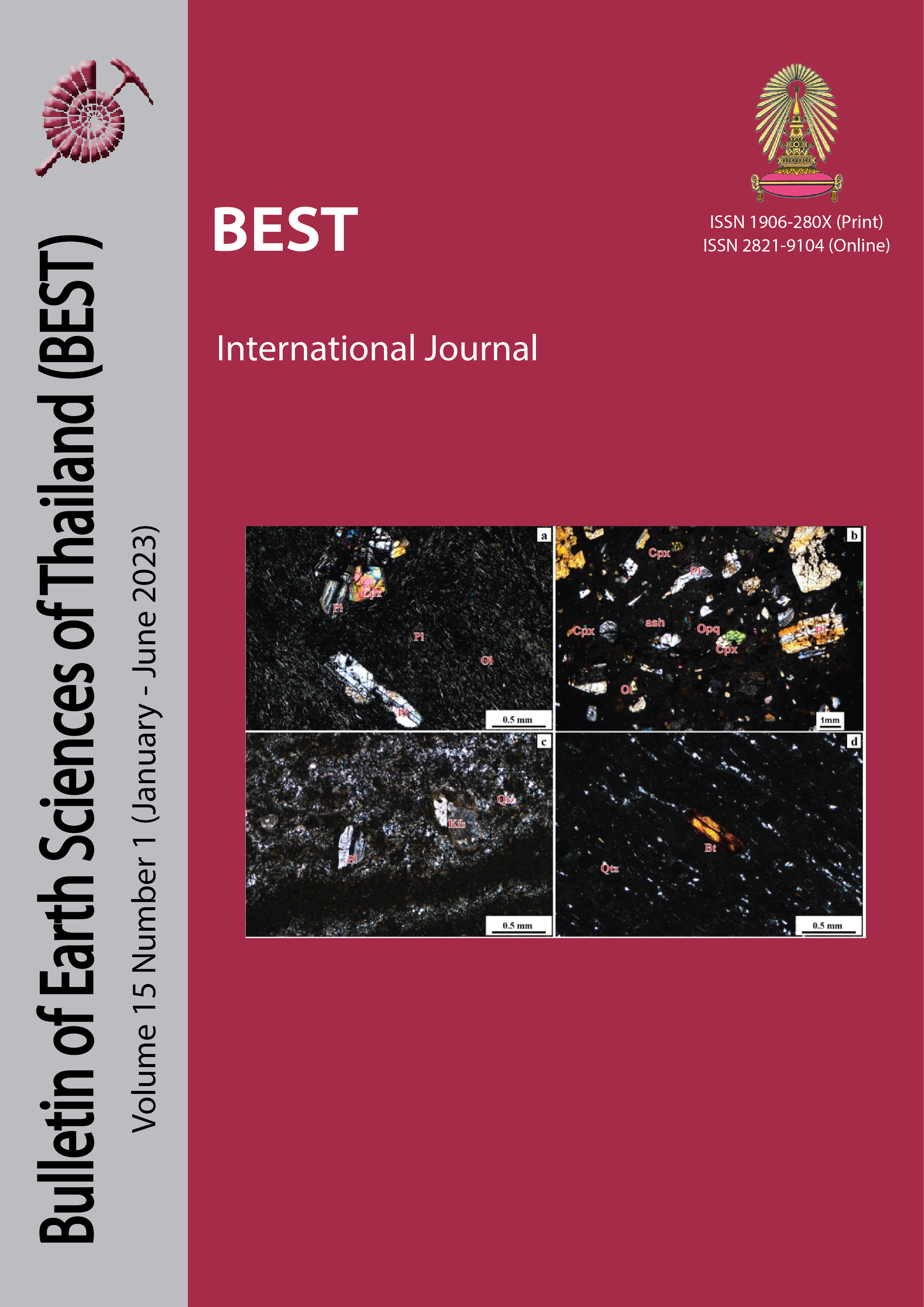Mineral chemistry of biotite from granitic rocks in Prachuap Khiri Khan, southern Thailand: Implications for crystallization condition and petrogenesis
Main Article Content
Abstract
This study investigates the characteristics and mineral chemistry of biotite from porphyritic muscovite-biotite granite in the Prachuap Khiri Khan area, southern Thailand. The biotites in this granite exhibit distinctive features, including the presence of siderophyllite and Fe-biotite endmembers. The obtained mineral chemistry of biotite indicates that the granite's formation occurred in a collisional setting. The prevailing oxidizing conditions, as indicated by the nickel-nickel oxide to fayalite-magnetite-quartz buffer range, played a crucial role in shaping the chemical composition of the biotites. Furthermore, the analysis suggests the involvement of hydrous conditions during the granite's formation. Based on biotite geothermobarometry, the crystallization temperature of the biotite ranges from 631 to 719 °C, and crystallization pressure ranges from 2.73 to 4.05 kbar. These P-T conditions provide valuable insights into the thermal history and crystallization conditions of the granite. Additionally, the corresponding pressures are equivalent to an emplaced depth from 10.2 to 15.1 km of the granites in this area.
Article Details

This work is licensed under a Creative Commons Attribution-NonCommercial-NoDerivatives 4.0 International License.
Copyright © 2008 Department of Geology, Faculty of Science, Chulalongkorn University. Parts of an article can be photocopied or reproduced without prior written permission from the author(s), but due acknowledgments should be stated or cited accordingly.


